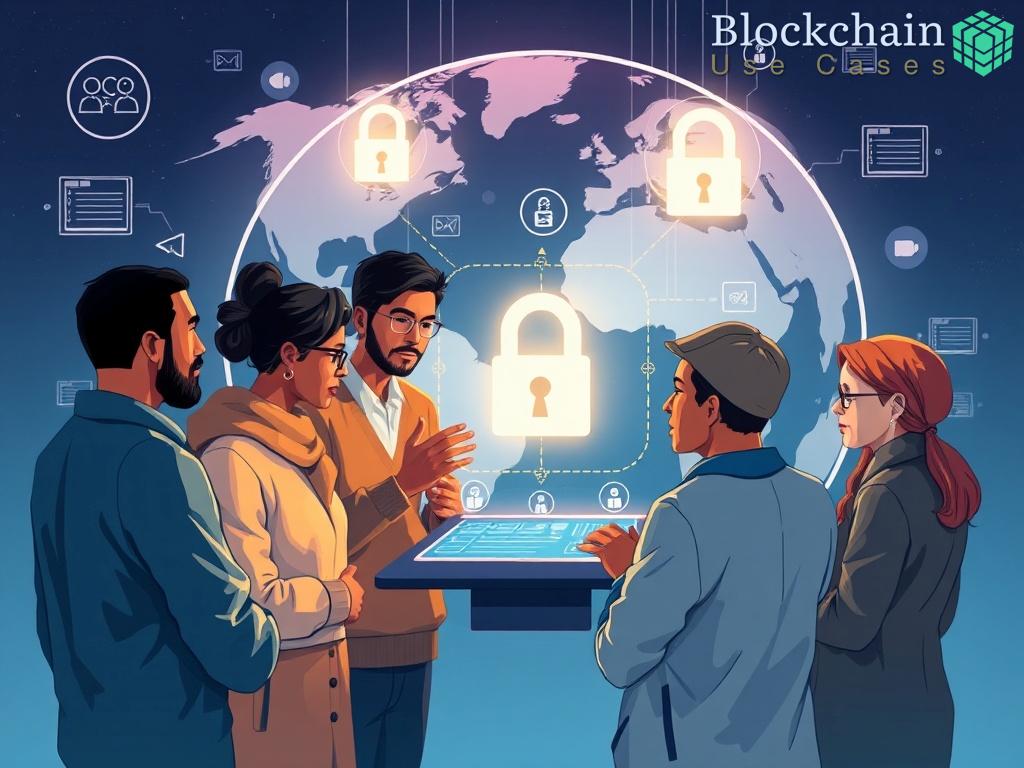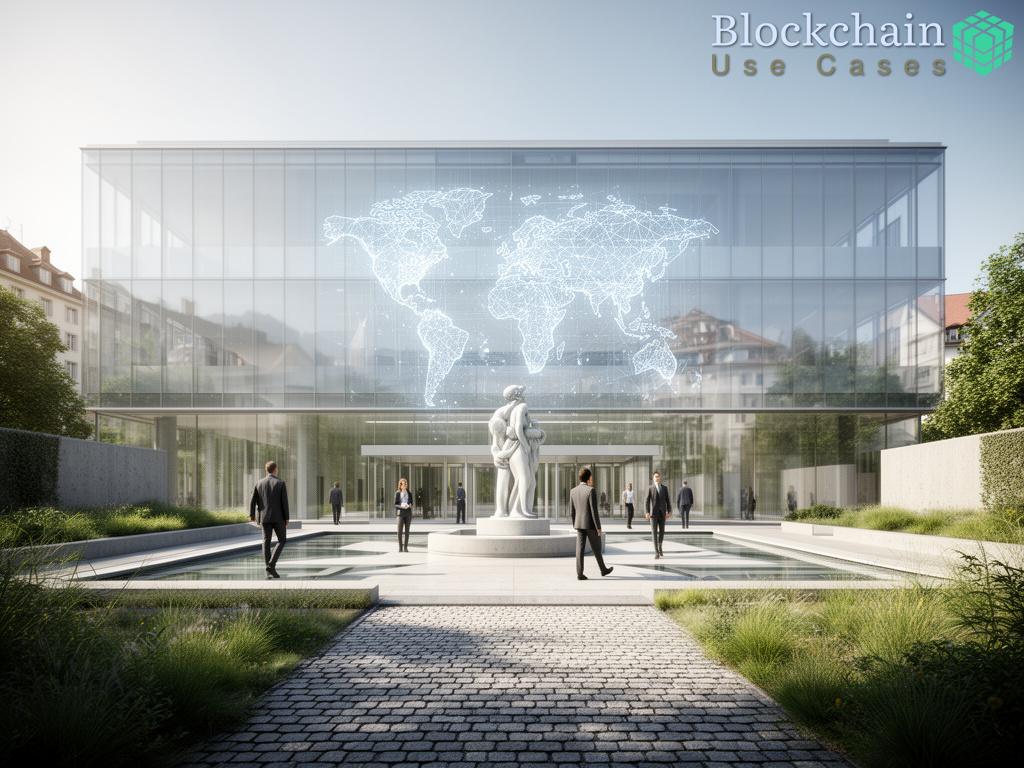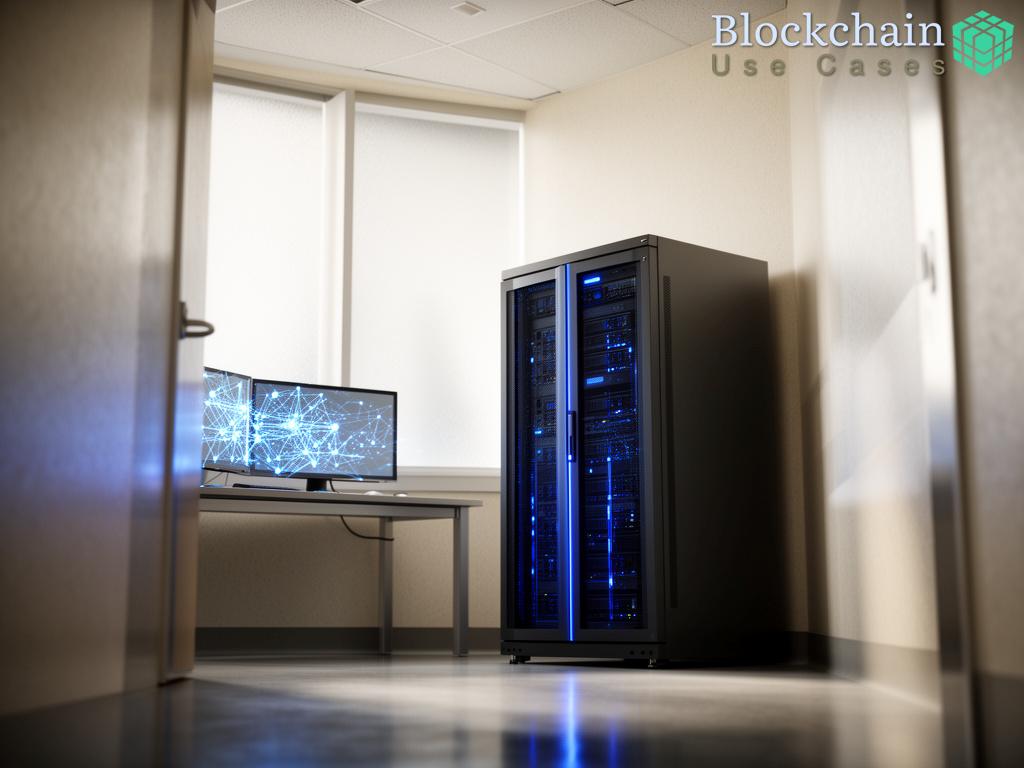Decentralized Trust: The Future of Data Security
The Paradigm Shift in Data Management
In an era where data breaches and privacy concerns plague organizations, human rights organizations are at the forefront of the battle for secure data management. The sensitive nature of beneficiary data calls for innovative solutions that not only protect privacy but also build trust among stakeholders. Enter blockchain technology—a revolutionary approach that promises to redefine how we secure and manage sensitive information.
Why Blockchain? The Unmatched Advantages
Blockchain technology offers a multitude of benefits that make it particularly suitable for the needs of human rights organizations. The decentralized nature of blockchain means that no single entity has control over the data, reducing the risk of unauthorized access or manipulation. Additionally, the technology provides an immutable record of transactions, ensuring that data integrity is maintained over time.
Here’s a quick overview of the key advantages:
- Enhanced Security: Data is encrypted and distributed across a network, making it nearly impossible for hackers to compromise.
- Transparency: All transactions are recorded on a public ledger, allowing stakeholders to verify information without compromising privacy.
- Immutability: Once data is entered into the blockchain, it cannot be altered or deleted, safeguarding against fraud.
- Empowerment of Beneficiaries: Individuals can have more control over their own data, deciding who can access it and for what purpose.
The Road Ahead: Challenges and Opportunities
While the prospects of using blockchain for data management in human rights organizations are exciting, there are challenges to address. The need for technology adoption, regulatory frameworks, and user education are paramount. However, these challenges present opportunities for innovation and collaboration among stakeholders.
In conclusion, as we navigate the complexities of data security, blockchain stands out as a beacon of hope. By harnessing the power of decentralized trust, human rights organizations can not only protect sensitive beneficiary data but also foster a culture of transparency and accountability.
Empowering Human Rights: Blockchain’s Role in Beneficiary Privacy

Unlocking Privacy through Blockchain Technology
In the evolving landscape of data privacy, the implementation of blockchain technology offers a promising avenue for human rights organizations. As these organizations strive to protect vulnerable populations, the safeguarding of sensitive beneficiary data becomes paramount. Blockchain not only enhances security but also empowers beneficiaries by giving them control over their data, allowing them to navigate their privacy rights in a digital age.
Redefining Control: The Beneficiary-Centric Approach
The traditional model of data management often leaves beneficiaries feeling powerless, with their information controlled by third-party entities. Blockchain disrupts this model by enabling a decentralized framework where beneficiaries can dictate the terms of their data use. This paradigm shift fosters trust and empowers individuals to manage their privacy actively.
To illustrate the impact of blockchain on beneficiary control, consider the following key points:
- Self-sovereignty: Beneficiaries can own and control their personal data, granting access only to those they trust.
- Granular permissions: Users can specify what data to share and with whom, creating a tailored privacy experience.
- Real-time updates: Immediate notifications on who accesses their data foster transparency and accountability.
- Revocation of access: Beneficiaries have the ability to withdraw access to their data as needed, reinforcing their autonomy.
Bridging the Gap: Education and Community Engagement
While the advantages of blockchain technology are clear, empowering beneficiaries also necessitates education and community involvement. Human rights organizations must take the initiative to educate their beneficiaries about the capabilities and implications of blockchain, ensuring they can harness its benefits effectively.
This education can manifest in various ways, including workshops, informational campaigns, and collaborative projects that engage beneficiaries in the development and implementation of blockchain solutions. By fostering a community that is informed and engaged, organizations can create a supportive environment where beneficiaries feel confident in their ability to manage their data privacy.
Smart Contracts: Automating Integrity in Sensitive Data Handling
In the realm of human rights organizations, the urgency for robust data management solutions has never been more critical. As these organizations grapple with the complexities of protecting sensitive beneficiary data, blockchain technology emerges as a game-changer. One of its most compelling features, smart contracts, promises to automate integrity in handling sensitive information, ensuring trust and transparency in every transaction.
Smart contracts are self-executing agreements with the terms directly written into code, which reside on the blockchain. This technology eliminates the need for intermediaries, thereby reducing the risk of human error or manipulation. With their ability to enforce compliance automatically, smart contracts can redefine how human rights organizations manage sensitive beneficiary data, ensuring that privacy and security are upheld at every level.
Seamless Execution: The Power of Automation
Imagine a world where data-sharing agreements operate without the need for constant oversight. Smart contracts facilitate this by executing predefined actions when specific conditions are met. For instance, when a beneficiary consents to share their data with a particular organization, a smart contract can automatically grant access, log the transaction, and notify the beneficiary—all in real-time. This level of automation not only enhances efficiency but also strengthens accountability between parties.
The implications are profound. By eliminating manual processes, human rights organizations can reduce the potential for data mishandling. Moreover, beneficiaries experience a seamless process where their consent and preferences are respected without the cumbersome bureaucracy often associated with traditional data management systems. This innovative approach fosters a culture of trust, where beneficiaries are assured that their data is handled with the utmost integrity.
Building Trust Through Transparency and Accountability
The inherent transparency of blockchain technology is further amplified by smart contracts. Each contract is recorded on the blockchain, creating an immutable ledger of all transactions. This means that stakeholders can verify each interaction regarding sensitive data without compromising the privacy of the beneficiaries. The ability to audit transactions in real-time enhances the credibility of human rights organizations, as they can demonstrate compliance with data protection standards.
Furthermore, smart contracts provide beneficiaries with the assurance that their data will only be used in accordance with their wishes. They can set parameters within the contract that dictate how their information is accessed and utilized, which can be updated as their needs change. This flexibility not only empowers beneficiaries but also cultivates a sense of ownership over their data, reinforcing their rights in the digital landscape.
As the conversation around data privacy evolves, the integration of smart contracts into the operations of human rights organizations stands out as a pivotal advancement. By leveraging automation to safeguard sensitive beneficiary data, these organizations can navigate the intricate balance between accessibility and security, ultimately fulfilling their mission with greater efficacy and integrity.
Transparency and Accountability: A New Era for NGOs
In the transformative landscape of data management, the integration of blockchain technology offers a remarkable opportunity for non-governmental organizations (NGOs) to enhance transparency and accountability. As the world becomes increasingly aware of the ethical implications surrounding data usage, human rights organizations can leverage this advanced technology to not only bolster their operational integrity but also to foster trust among stakeholders.
Unveiling the Power of Transparency
Transparency is not just a buzzword in the context of NGOs; it is a fundamental principle that underpins their credibility. With blockchain’s immutable ledger, organizations can record every transaction related to sensitive beneficiary data in a way that is verifiable and easily accessible. This means that stakeholders, including donors and beneficiaries, can independently verify how their contributions are being used and how personal information is managed, creating a newfound sense of trust that was previously elusive.
Imagine a scenario where a donor can trace their financial contributions directly to specific projects and see real-time updates on the impact being made. By utilizing blockchain, NGOs can present a clear picture of their activities, demonstrating not just compliance but a commitment to ethical practices.
Accountability through Immutable Records
One of the most significant benefits of blockchain technology lies in its capacity to ensure accountability. Each transaction is recorded in a way that cannot be altered or deleted, which provides a powerful safeguard against fraud and mismanagement. This feature enables human rights organizations to maintain a clear and auditable record of data handling processes, fostering an environment where accountability is the norm rather than the exception.
For instance, when a beneficiary’s data is accessed, a blockchain record is created, detailing who accessed the information, when, and for what purpose. This level of detail not only protects the privacy of beneficiaries but also holds organizations accountable for their actions, ensuring that data is handled with the utmost respect and care.
| Feature | Traditional Data Management | Blockchain Data Management |
|---|---|---|
| Data Integrity | Susceptible to tampering | Immutable records ensure accuracy |
| Access Control | Centralized control, prone to breaches | Decentralized access, enhancing security |
| Stakeholder Trust | Limited visibility and accountability | Full transparency with verifiable records |
Fostering a Culture of Ethical Practices
The commitment to transparency and accountability extends beyond just the mechanics of data management. It cultivates a culture of ethical practices within NGOs. As organizations adopt blockchain technology, they inherently align themselves with the values of openness and integrity, reinforcing their mission to protect and empower vulnerable populations.
In this new era, NGOs can position themselves as leaders in ethical data management, setting a standard for others to follow. By embracing blockchain, they not only enhance their operational frameworks but also inspire confidence in their stakeholders, paving the way for more meaningful collaborations and support.
Overcoming Challenges: Implementing Blockchain in Human Rights Organizations
The implementation of blockchain technology in human rights organizations is an exciting frontier, yet it is not without its challenges. As these organizations aim to fortify their data management systems, they face a myriad of obstacles that must be navigated carefully. Understanding and addressing these challenges is crucial, as the potential of blockchain to protect sensitive beneficiary data hinges on successful adoption and integration into existing frameworks.
Technical and Infrastructure Hurdles
To harness the full power of blockchain, human rights organizations must first confront significant technical and infrastructure hurdles. The transition from traditional data management systems to a decentralized blockchain framework requires robust IT infrastructure and technical expertise. Many organizations may find themselves lacking the necessary resources or knowledge to initiate this shift. Moreover, integrating blockchain with existing databases and applications can be a daunting task. Organizations must not only invest in advanced technology but also train their staff to ensure they understand how to operate within this new paradigm. This investment in technology and education is a critical step toward enabling organizations to fully leverage the transformative potential of blockchain.
Regulatory Compliance and Ethical Considerations
As human rights organizations delve into the realm of blockchain, they must also grapple with regulatory compliance and ethical considerations. The decentralized nature of blockchain can complicate adherence to data protection laws, such as the General Data Protection Regulation (GDPR), which emphasizes the right to be forgotten. Organizations must carefully design their blockchain implementations to respect these legal frameworks while still maintaining the immutable and transparent features of the technology. Achieving this balance requires a deep understanding of both legal obligations and the unique attributes of blockchain. Engaging legal experts and collaborating with regulators can foster a productive dialogue, helping organizations navigate the complexities of compliance while safeguarding beneficiary data.
Furthermore, ethical considerations surrounding the use of blockchain in human rights organizations cannot be overlooked. Organizations must be vigilant about the potential for exacerbating inequalities in access to technology, ensuring that all beneficiaries can benefit from enhanced data security without being left behind in this digital evolution. Building a framework that prioritizes inclusivity and equity will not only enhance the effectiveness of blockchain solutions but also reinforce the ethical commitments of these organizations.
In summary, while the path to implementing blockchain technology in human rights organizations is fraught with challenges—from technical hurdles to regulatory compliance—the rewards are immense. By proactively addressing these obstacles, organizations can pave the way for a future where sensitive beneficiary data is managed with unparalleled security, transparency, and integrity. The journey may be complex, but the promise of a more secure digital landscape for vulnerable populations is worth the effort.





